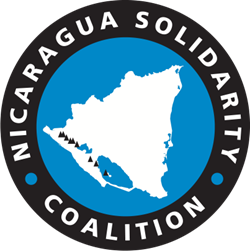
Women in Nicaragua
Nicaragua currently ranks #6 in the world for gender equality
#1 for women in parliament
#1 in women’s professional & technical employment.
HISTORICAL OVERVIEW
After making significant strides during the first stage of the Nicaraguan revolution (1979-1990), women lost rights during the neoliberal period that followed. But since 2007, women have been making steady progress due to programs that specifically target women—especially in the areas of health, poverty reduction, and fostering a culture free from violence.
HEALTH: Thanks to free universal health care, reproductive health education, and access to free family planning, birth rates in Nicaragua have now dropped from to 2.32 per woman. Innovative public programs such as 182 maternity wait homes—where rural women and those with high-risk pregnancies wait to give birth—have caused maternal mortality to drop by 67.7% and child mortality by 58.6% in 17 years.
POVERTY REDUCTION: Paved roads, improved housing, legalized land tenure, school meal programs, free health care, electrification, and potable water have all improved quality of life drastically, freeing women to participate in the life and leadership of their communities and of their country.
The Zero Hunger program gives women heads of household a pregnant cow, sow, chickens, feed, and seeds, improving the nutrition of 198,693 families in the last 17 years. The kitchen gardens program has given low-interest financing to 250,552 farms to grow basic grains, boosting the production of basic grains by 39% and leaving Nicaragua 90% food sovereign.
The Zero Usury program has provided 1.7 million microloans to 548,000 women at 5% annual interest. Nearly $422 million has been loaned through these programs, leading to the formation of women’s cooperatives and jobs for more women.
A CULTURE OF PEACE: Nicaragua has the lowest homicide and femicide rates in Central America and among the lowest in the hemisphere, as values of peace and women’s rights are taught from the earliest years in school. Women make up 33% of Nicaragua's police force and staff 293 women’s police stations around the country serving women and children victims of violence. Allegations of violence and abuse are taken seriously and handled quickly. These officers also conduct home visits to refer women for services such as food support and skills to become financially independent.
#6 IN GENDER EQUALITY: According to the 2024 World Economic Forum’s Global Gender Gap Report, from 2007 to 2024 Nicaragua jumped from 90th to 6th place in the world, closing the gender gap by 80% in just 17 years. Women now participate in all levels of government. By law, 50% of elected officials must be women. Nicaragua ranks number one in the world for women’s political empowerment, holding the number one spot for women in parliament and women cabinet ministers. Women and girls were previously denied an education when it was an unaffordable luxury, but the first decree of the new Sandinista government in 2007 was to reinstate free, quality public education, which is now free from preschool through graduate school and vocational school. Nicaragua ranks #1 in the world for women’s enrolment in third level education and women’s professional and technical employment.
Articles
2024
Renk, Becca. “Celebrating Women’s Day in Nicaragua: “We won’t go back into our cages!” NicaNotes, 13 March 2024. En español aquí organic fair-trade certified coffee, maternity wait homes, Zero Hunger program, gender parity law, Zero Usury law
2023
“We’re Not Fighting for Space Anymore.” NicaNotes, 9 March 2023 by Becca Renk. 50-50 Gender Parity Mandate, women’s police stations, Zero Usury lending program, Zero Hunger program, maternity waiting homes, free education
“Women in Nicaragua: Power and Active Participation.” NicaNotes, 23 Feb. 2023, Delegation Report Back (January 2023). gender parity, health, education, land titles, transportation
2022
“Community Building: Involving the Next Generation.” NicaNotes, 29 Sept. 2022 by Winnie Narvaez. Dolores Esquivel, Gloria Quintanilla women’s co-operative, Santa Julia, Rural Workers Association (ATC), ATC Rural Women’s Movement (MMC)
“Nicaraguan Electoral Council: ‘We are servants of the people of Nicaragua, public servants to the people of Nicaragua and that is why we carry out this responsibility in the best way we possibly can.’” Tortilla con Sal, 19 March 2022. Magistrate Brenda Rocha, Magistrate Mayra Salinas, Conservative Party, Democratic Restoration Party, Citizens for Liberty party

